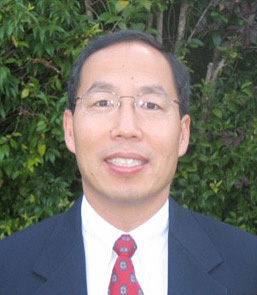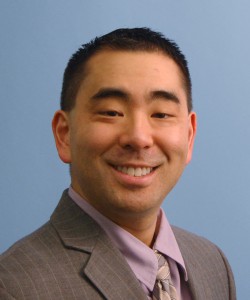Nanotechnology researchers at UC Santa Cruz are partners in a new center for nanomaterials research funded by NASA and based at UC Merced. The $5 million NASA grant to establish the Merced Nanomaterials Center for Energy and Sensing (MACES) includes $947,000 for UC Santa Cruz.
The UCSC affiliates include Jin Zhang, professor of chemistry and biochemistry, and Michael Oye, adjunct professor of electrical engineering and the UCSC co-director of the Advanced Studies Laboratories at NASA Ames Research Center. Led by UC Merced engineering professor Jennifer Lu, MACES aims to develop innovative nanotechnology solutions for space exploration missions and help develop a pipeline for highly qualified workers in science, technology, engineering and math (STEM). Center investigators, including collaborators at UC Santa Cruz and NASA Research Centers, plan to create new materials solutions enabling high-performance, reliable, compact, and lightweight energy-conversion, storage, and sensing devices for NASA missions.
Zhang's lab will work on both energy conversion and chemical/biochemical sensing, the two major thrusts of the center's research program. His group will synthesize and characterize nanomaterials for photovoltaic solar cells, fabricate solar cells, and evaluate their performance. For the sensor research, Zhang's lab will develop nanomaterials for a sensor based on a platform using optical fibers and surface-enhanced Raman scattering (SERS).
Oye's lab will focus on the energy thrust of the proposed work. His group will synthesize and characterize metal oxide nanowires for energy harvesting devices. The Oye and Zhang labs will both contribute to the education and training of students and other outreach activities of the center. MACES will create a scholarship program to provide research opportunities for undergraduate students, particularly underrepresented students, and provide research fellowships to eight or more graduate students annually.
Nationally, only about 4 percent of Hispanics between the ages of 25 and 34 have associate's degrees or higher in STEM fields. Lu said this low number presents a serious challenge to meet the need for a world-leading STEM workforce. At UC Merced, 46 percent of undergraduate students are Hispanic underrepresented minorities, while 30 percent of UC Santa Cruz students fit the same category.
"This demographic profile offers an ideal opportunity to make a positive long-term impact on underrepresented minorities," Lu said.
The center aims to enrich STEM education with an emphasis on hands-on learning and build the STEM workforce pipeline through outreach to local high school students as well as undergraduate and graduate students from the two UC campuses and nearby state universities.




